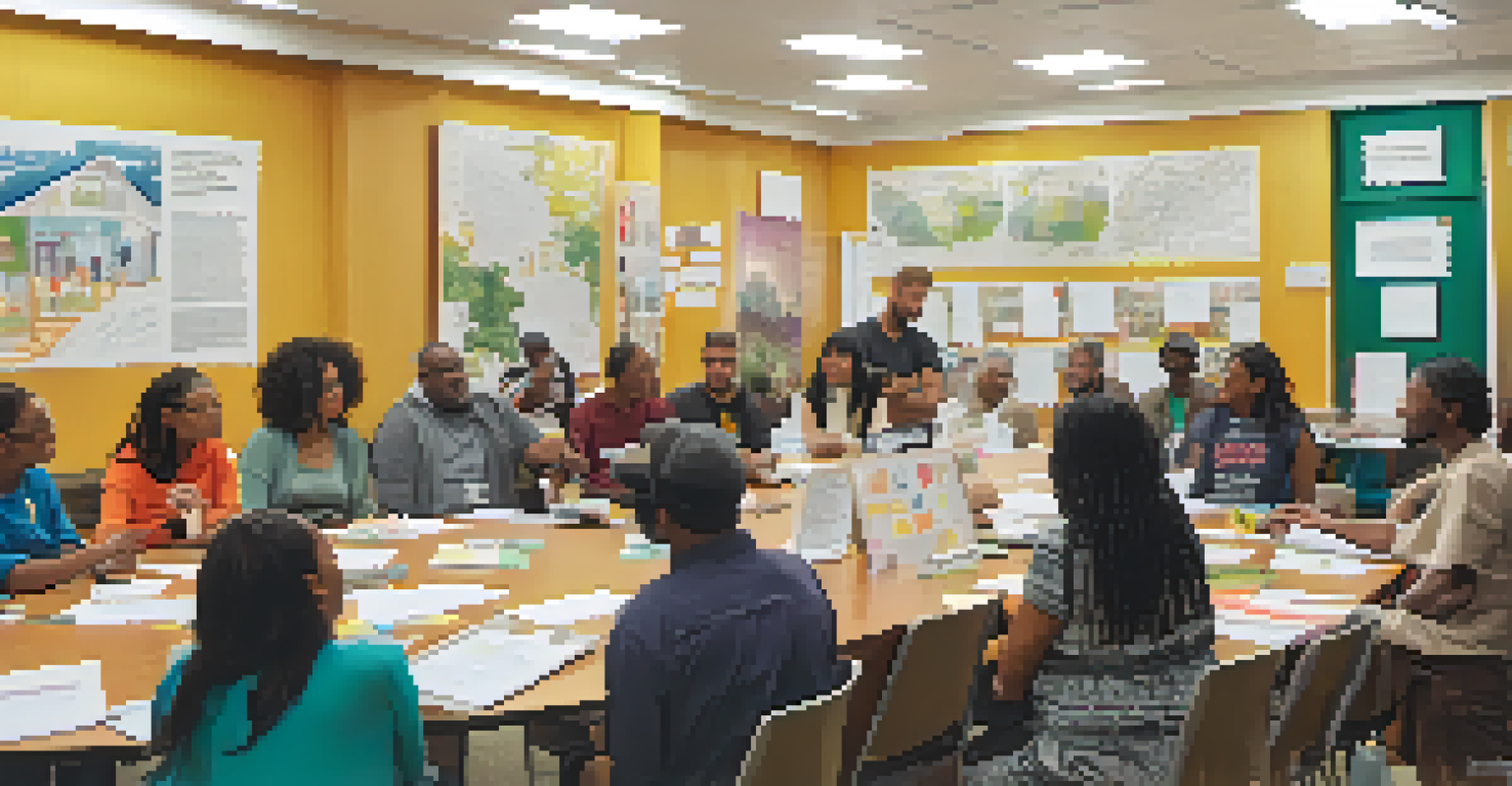The Role of Nonprofits in Addressing NYC's Housing Shortage

Understanding NYC's Housing Shortage: A Growing Concern
New York City faces a significant housing shortage, driven by rising rents and stagnant wages. With an estimated 100,000 homeless individuals in the city, this crisis affects thousands of families and individuals. The lack of affordable housing options has become a pressing social issue, impacting the quality of life for many residents.
Housing is absolutely essential to human flourishing. Without stable shelter, it all falls apart.
As the city’s population continues to grow, the demand for housing far outpaces the supply. This imbalance creates a challenging environment for low- and moderate-income families, who struggle to find safe and affordable places to live. The competitive real estate market exacerbates the situation, pushing more people into unstable living conditions.
In this context, nonprofits play a crucial role in addressing these challenges. They not only provide immediate support for those in need but also advocate for long-term solutions to improve the housing landscape in NYC.
The Role of Nonprofits: Direct Support Services
Many nonprofits in New York City offer direct support services to individuals and families facing housing insecurity. These organizations provide emergency shelter, transitional housing, and rental assistance to those in need. For instance, groups like Coalition for the Homeless focus on providing resources and advocacy to help people navigate the complex housing system.

Beyond just shelter, these nonprofits often offer wraparound services such as job training, mental health support, and financial counseling. By addressing the root causes of homelessness, they empower individuals to regain stability and independence. This holistic approach is essential for ensuring long-term success for those they serve.
NYC Faces a Housing Crisis
The growing demand for affordable housing in New York City is exacerbated by rising rents, stagnant wages, and a significant homeless population.
Moreover, these organizations frequently collaborate with local governments and other agencies to maximize their impact. By pooling resources and knowledge, they can create more comprehensive solutions that address the multifaceted nature of housing insecurity.
Advocacy and Policy Change: Nonprofits in Action
In addition to providing direct support, nonprofits play an active role in advocating for policy changes that benefit low-income renters. They work tirelessly to influence legislation that promotes affordable housing development and tenant protections. Organizations like the New York City Housing Authority (NYCHA) are key players in this advocacy landscape.
We have a moral obligation to ensure that everyone has access to safe and affordable housing.
Through grassroots campaigns, public awareness initiatives, and partnerships with local leaders, nonprofits push for policies that address systemic issues contributing to the housing crisis. Their efforts often lead to crucial reforms, such as rent stabilization laws and increased funding for affordable housing projects.
By amplifying the voices of those affected by the housing crisis, these organizations ensure that the needs of vulnerable populations are represented in policy discussions. This advocacy work is vital for creating lasting change in the housing landscape of New York City.
Innovative Housing Solutions: What Nonprofits Are Doing
Nonprofits are also at the forefront of developing innovative housing solutions to tackle NYC's housing shortage. Many organizations are partnering with developers to create affordable housing units within new construction projects. These collaborations often prioritize sustainable building practices and community involvement.
For example, some nonprofits have initiated community land trusts, which allow neighborhoods to control land use and development. By removing land from the speculative market, these trusts help ensure that housing remains affordable for future generations. This approach not only addresses immediate housing needs but also fosters community resilience.
Nonprofits Drive Housing Solutions
Nonprofits are crucial in providing direct support services, advocating for policy changes, and developing innovative housing solutions to combat the housing shortage.
Additionally, nonprofits are exploring innovative funding models, such as social impact bonds, to finance affordable housing initiatives. These creative solutions demonstrate the adaptability and resourcefulness of nonprofits in addressing the housing crisis.
Community Engagement: Building Stronger Neighborhoods
Community engagement is another essential aspect of the work that nonprofits do to address housing issues in NYC. By involving residents in the decision-making process, these organizations foster a sense of ownership and empowerment within communities. This collaborative approach helps ensure that housing solutions are tailored to the unique needs of each neighborhood.
Many nonprofits host workshops, forums, and outreach events to educate residents about their housing rights and available resources. This information-sharing not only helps individuals navigate the housing system but also builds stronger community ties. Residents who feel informed and supported are more likely to advocate for their needs and contribute to local solutions.
Moreover, these community-centric initiatives often lead to the development of supportive networks among residents. As neighbors come together to address shared challenges, they can create a more resilient community that is better equipped to face the ongoing housing crisis.
Partnerships with Government and Private Sector
Nonprofits often collaborate with government agencies and private sector partners to amplify their impact on housing issues. These partnerships can lead to increased funding, resources, and expertise that enhance the effectiveness of their programs. By working together, they can tackle the housing crisis from multiple angles.
For instance, some nonprofits partner with local governments to streamline the process of accessing housing assistance. By simplifying bureaucratic hurdles, these collaborations make it easier for residents to obtain the support they need. This not only alleviates immediate housing struggles but also fosters trust between communities and government entities.
Community Engagement is Essential
Engaging residents in the housing decision-making process fosters empowerment and builds stronger, more resilient communities.
Additionally, partnerships with the private sector can lead to innovative solutions and investment in affordable housing projects. By leveraging the strengths of various stakeholders, nonprofits can create more comprehensive strategies to address the complex housing shortage in New York City.
The Future of Nonprofits in NYC Housing Solutions
As New York City continues to grapple with its housing crisis, the role of nonprofits will remain crucial. These organizations are uniquely positioned to respond to the needs of vulnerable populations while advocating for systemic change. Their commitment to addressing housing issues will be vital in shaping a more equitable future for the city.
Looking ahead, nonprofits will likely need to further innovate and adapt to the changing landscape of housing in NYC. This may include embracing new technologies, exploring alternative funding sources, and expanding their outreach efforts to reach more individuals in need. Staying agile will be key to their success.

Ultimately, the collective efforts of nonprofits, residents, and other stakeholders will play a significant role in addressing the housing shortage. By working together, they can create a more inclusive and supportive environment for all New Yorkers.